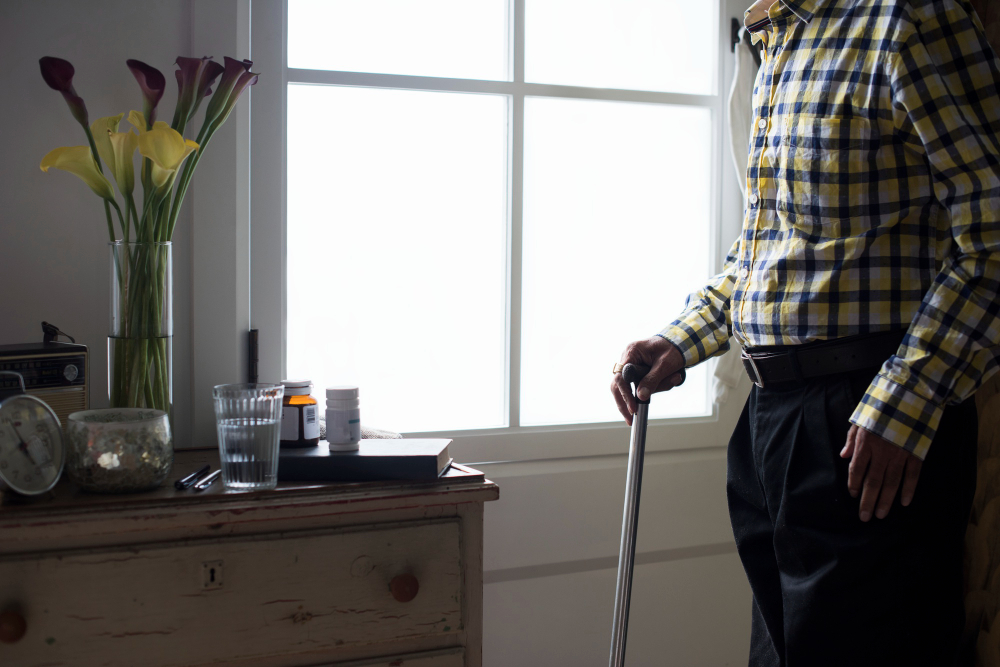Understanding Elderly Depression and Tips for Better Mental Health

Depression is a common mental health issue among the elderly, yet it often goes unnoticed and untreated. With an aging population, understanding elderly depression is more critical than ever. In this blog post, we'll explore the causes, signs, and treatments of depression in older adults, and provide practical tips for improving mental health. Plus, we'll highlight the importance of seeking trusted home health care in Philadelphia, PA, like Empire Home Health Care, to support mental wellness in seniors.
What is Elderly Depression?
Elderly depression is a mood disorder characterized by persistent feelings of sadness and loss of interest in activities once enjoyed. It can significantly impact daily functioning and quality of life. While it's normal to feel occasional grief or sadness as one ages, depression is more severe and often requires intervention.
Common Causes of Depression in Seniors
Depression in older adults can result from various factors, such as:
- Health Issues: Chronic illnesses, pain, or disabilities can contribute to depression.
- Loss and Grief: Losing loved ones, friends, or even pets can trigger depressive symptoms.
- Social Isolation: Seniors who live alone or have limited social interaction are at higher risk.
- Medications: Some prescriptions have side effects that may induce depression.
- Psychological Factors: Previous history of depression or anxiety increases vulnerability.
Recognizing the Signs of Depression in the Elderly
Often, depression in older adults is overlooked or mistaken for other aging-related issues. Here are some common signs to watch for:
- Persistent sadness or feelings of hopelessness
- Loss of energy and fatigue
- Changes in appetite or weight
- Sleep disturbances (insomnia or excessive sleeping)
- Loss of interest in hobbies and activities
- Difficulty concentrating or making decisions
- Feelings of worthlessness or guilt
- Physical symptoms without a clear cause, such as aches or pains
Tips for Managing Depression in Older Adults
While professional help is crucial, there are several ways to support an elderly loved one struggling with depression:
1. Encourage Social Interaction
Isolation is a significant risk factor for depression. Encourage your loved one to engage in social activities, whether through community centers, clubs, or family gatherings. Even virtual interactions via video calls can make a difference.
2. Promote Physical Activity
Exercise is a powerful tool for combating depression. Encourage seniors to engage in regular physical activities they enjoy, such as walking, gardening, or yoga. Exercise releases endorphins that improve mood and overall well-being.
3. Ensure a Balanced Diet
Nutrition plays a vital role in mental health. Encourage a diet rich in fruits, vegetables, whole grains, and lean proteins to provide essential nutrients for brain health. Limit processed foods and sugars that can exacerbate mood swings.
4. Establish a Routine
A structured daily routine can provide a sense of normalcy and purpose. Help your loved one establish a regular schedule that includes time for meals, activities, and relaxation.
5. Encourage Professional Help
Depression is a medical condition that often requires professional intervention. Encourage your loved one to consult with a healthcare provider or mental health professional. Therapy, counseling, or medication may be necessary to manage symptoms effectively.
6. Educate Yourself and Others
Understanding depression and its impact on seniors is crucial. Educate yourself and others involved in caregiving to recognize signs and provide informed support.
The Role of Home Health Care in Supporting Mental Wellness
Home health care services can be invaluable in managing elderly depression. They provide personalized care and companionship, ensuring seniors receive the attention they need. In Philadelphia, PA, Empire Home Health Care is a trusted provider that offers comprehensive home health care services tailored to individual needs.
Why Choose Empire Home Health Care?
- Experienced Professionals: Our team includes skilled nurses, therapists, and caregivers who understand the unique needs of elderly clients.
- Personalized Care Plans: We develop customized care plans to address both physical and mental health needs.
- Compassionate Support: Our caregivers provide emotional support and companionship to reduce isolation and improve mental well-being.
- Medication Management: We assist with medication reminders and management to ensure compliance and address any side effects.
- Flexible Services: Whether you need temporary respite care or ongoing support, we offer flexible service options to fit your needs.
Conclusion
Understanding and addressing elderly depression is essential for promoting mental health and quality of life. By recognizing the signs, implementing practical strategies, and seeking professional help, we can support our loved ones in leading fulfilling lives. If you're concerned about the mental health of a senior in your life, consider reaching out to Empire Home Health Care in Philadelphia, PA, for expert guidance and support. Contact us today to learn more about our services and how we can assist you and your loved ones.